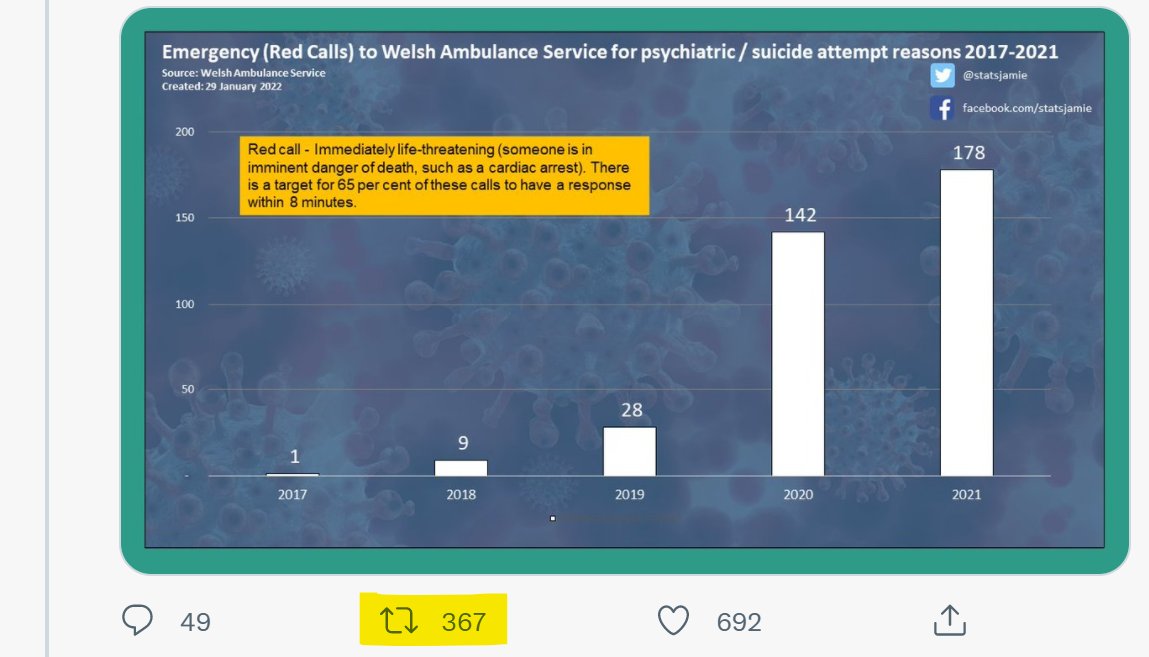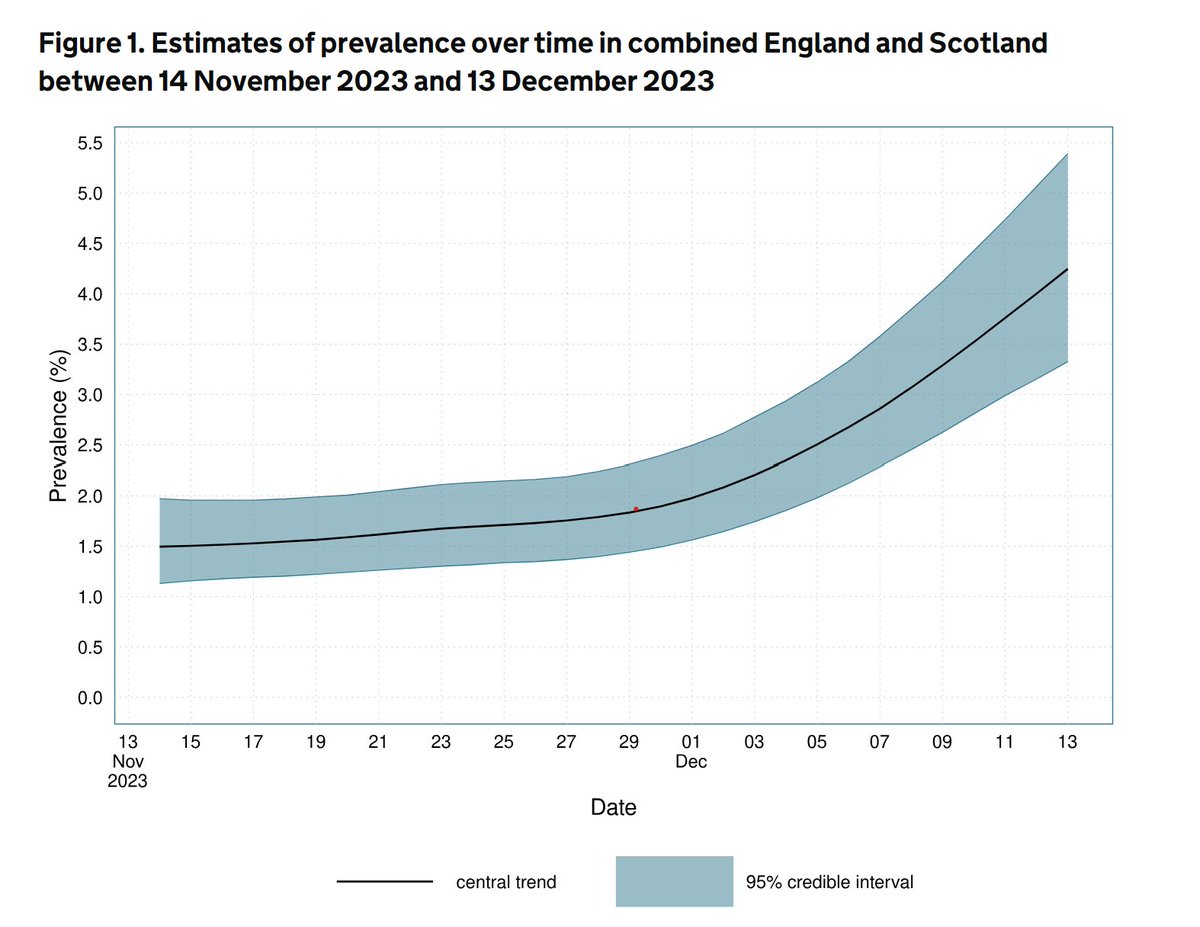Jamie's wording here is aimed at making you think that the pandemic has triggered a huge increase in psychiatric/suicide related call-outs in Wales.
The graph below is correct, but let's take a closer look...
1/
The graph below is correct, but let's take a closer look...
1/

Actually you don't need to take that close a look to see that there's something odd with the data. Only 1 case in 2017, rising to 28 in 2019 - all before the pandemic.
So it looks like there are data quality issues here. A change in reporting method maybe?
2/
So it looks like there are data quality issues here. A change in reporting method maybe?
2/

Let's look at a monthly analysis next - I've helpfully split out the period before any restrictions started, and you can see that the big increase was all prior to the pandemic taking hold.
It looks like a reporting change happened in late 19 - so nothing to do with COVID.
3/
It looks like a reporting change happened in late 19 - so nothing to do with COVID.
3/

And here's Jan and Feb, which in 2020 predated the pandemic, and you can see the big increase again.
Indeed the figures are higher in 2020 than in 2021 at the height of the second (Alpha) wave when the country was in lockdown.
4/
Indeed the figures are higher in 2020 than in 2021 at the height of the second (Alpha) wave when the country was in lockdown.
4/

As a senior ex-ONS employee, for balance Jamie might also have mentioned his former employer's assessment that suicides were significantly lower in the first quarter of the pandemic, giving a slightly different picture to that he tries to paint.
5/
ons.gov.uk/peoplepopulati…
5/
ons.gov.uk/peoplepopulati…

Mental health is of course a very important issue, and more so during the very difficult times we've had over the last 2 years. But it's important not to overstate the issue, as @statsjamie has done, for what motivation he has.
7/
7/
If you are struggling, and need help, or have otherwise been affected by these issues, here are some links to services which are there to help you, including the @samaritans helpline on 116 123.
8/8
nhs.uk/mental-health/…
8/8
nhs.uk/mental-health/…
Update:
Jamie has issued a clarification, after the Medical Director for the Welsh Ambulance Trust stepped in to the discussion (in a way not exactly helpful to his position, shall we say).
But here's the thing...
9/11
Jamie has issued a clarification, after the Medical Director for the Welsh Ambulance Trust stepped in to the discussion (in a way not exactly helpful to his position, shall we say).
But here's the thing...
9/11
https://twitter.com/statsjamie/status/1487823519450910720
Surprise, surprise, Jamie's followers seem less inclined to RT the clarification, meaning that in terms of coverage the damage is done, and the retraction is much less impactful than the original tweet, which remains at the time of writing.
10/11
10/11

And the opportunity to properly put the record straight, with an image from the link showing the clear statement from the ONS that suicides actually fell in 2020 is missed with the blandest of statements instead.
11/11
11/11

• • •
Missing some Tweet in this thread? You can try to
force a refresh













